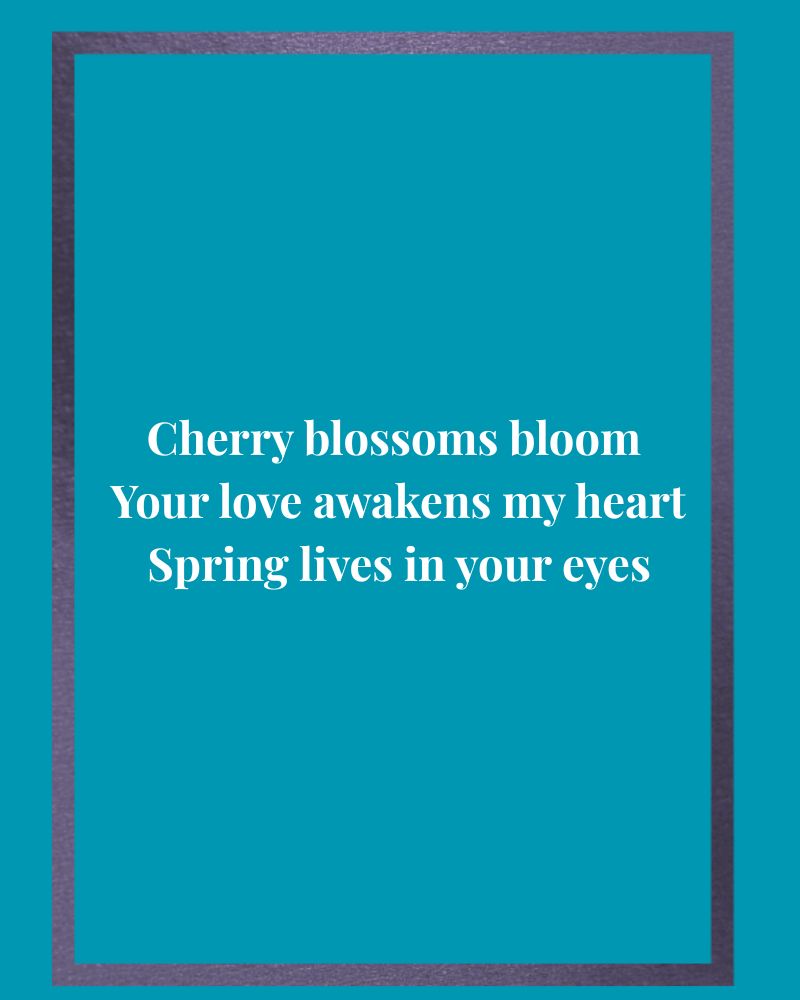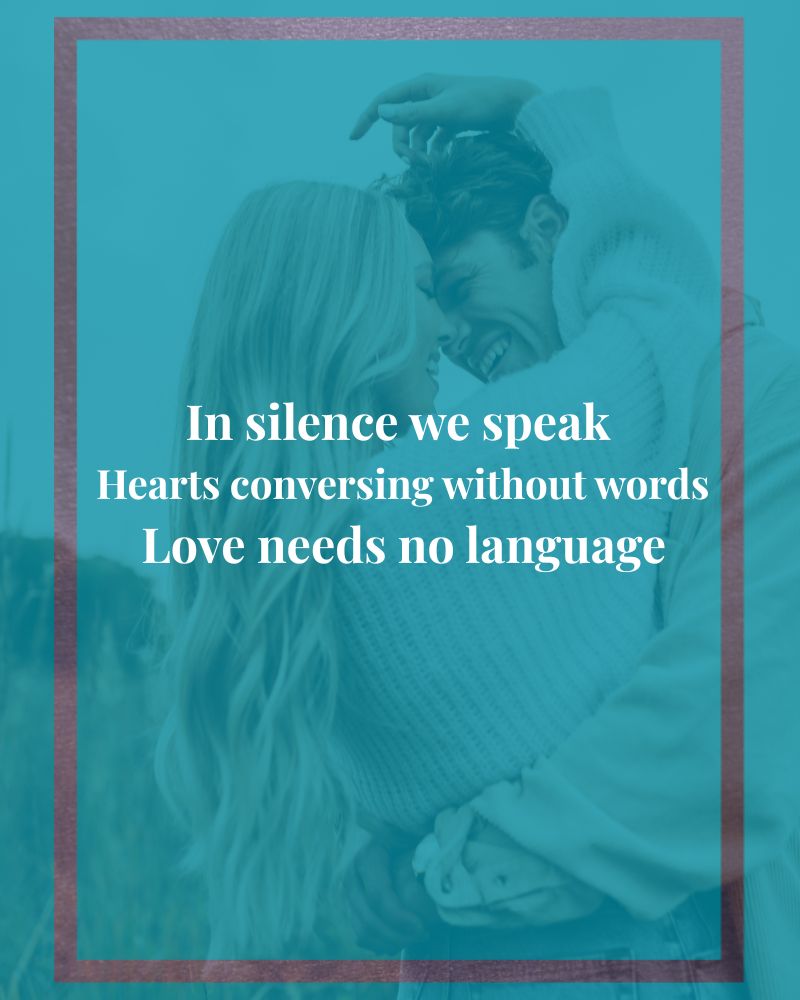Love doesn’t always need lengthy declarations or elaborate gestures. Sometimes the most profound romantic poetry comes wrapped in just seventeen syllables.
These 15 haiku for I love you poem expressions capture the essence of deep affection through the timeless Japanese art of concise verse, perfect for modern lovers seeking meaningful ways to share their hearts.
15 Original “I Love You” Haiku Poems That Speak to the Soul

Nature-Inspired Love Declarations
These romantic love haikus draw from nature’s eternal rhythms to express timeless devotion:
Cherry blossoms bloom
Your love awakens my heart
Spring lives in your eyes
Morning dew glistens
Like tears of joy on my cheek
You complete my world
Ocean waves whisper
Your name across sandy shores
Endless love flows deep
Mountain peaks stand tall
Yet your love towers higher
Touching heaven’s door
Autumn leaves falling
Each one carries my promise
Forever with you
These deep haiku examples demonstrate how natural imagery amplifies emotional impact.
The cherry blossom verse captures love’s awakening power, while the ocean haiku suggests infinite depth of feeling.
Everyday Moments of Love

Significant other haikus often find profound meaning in simple shared experiences:
Coffee steams between
Us while morning light dances
Love in simple things
Your laugh fills the room
Sunlight pales beside your smile
Heart skips every beat
Holding hands we walk
Through crowded streets feeling lone
Two souls, one rhythm
Evening stars appear
But none shine bright as your eyes
My constellation
Rainy day cuddles
Thunder cannot match the storm
Of love in my chest
These intimate haikus celebrate ordinary moments that become extraordinary through love.
The coffee morning scene transforms routine into romance, while the hand-holding verse captures how love creates private worlds within public spaces.
Deep Emotional Connection

The final group explores unconditional love haikus that transcend physical presence:
In silence we speak
Hearts conversing without words
Love needs no language
Time stops when you’re near
Clocks forget their urgent tick
Eternity waits
Dreams become real when
Your voice whispers “good morning”
Heaven greets the dawn
Soul recognizes
Soul across the crowded earth
Destined love finds home
Three words aren’t enough
Yet “I love you” holds our world
Simple truth profound
These soulmate poetry examples delve into love’s mystical dimensions.
The silence verse acknowledges telepathic understanding between twin souls, while the final haiku paradoxically celebrates both the inadequacy and completeness of “I love you.“
How to Use These I Love You Haiku Poems
Romantic poems work best when matched to specific moments and relationships.
Morning haikus suit breakfast notes or good-morning texts, while evening verses enhance dinner conversations or bedtime whispers.
Sweet haikus like the coffee morning scene work perfectly for anniversary cards, transforming simple observations into cherished love poems.
Social media lovers can share these love expressions as captions for couple photos, adding literary depth to visual stories.
Wedding planners might incorporate romantic partner verses into ceremonies, while poetry of love enthusiasts can collect personal favorites in handwritten journals.
Famous Haiku Masters and Their Approach to Love
Classical haikus from masters like Matsuo Basho rarely addressed love directly, preferring subtle implications through nature imagery.
Modern original haikus can learn from this restraint—the most powerful love poems often suggest rather than declare.
Basho wrote: “An ancient pond / A frog leaps in / Water’s sound.” While not explicitly romantic, this verse captures sudden transformative moments that love often brings.
Contemporary poets have adapted historical haikus for explicit romantic expression while maintaining traditional elegance.
The challenge lies in honoring Japanese poetic conventions without cultural appropriation—appreciating the form’s beauty while creating authentic personal expressions rather than imitations of Japanese verses.
Visit For More Blog’s:

Admin of romanticflart.com, I share deep romantic lyrics and heart-touching lines. I love writing feelings in words. Let’s feel love together, every day.
